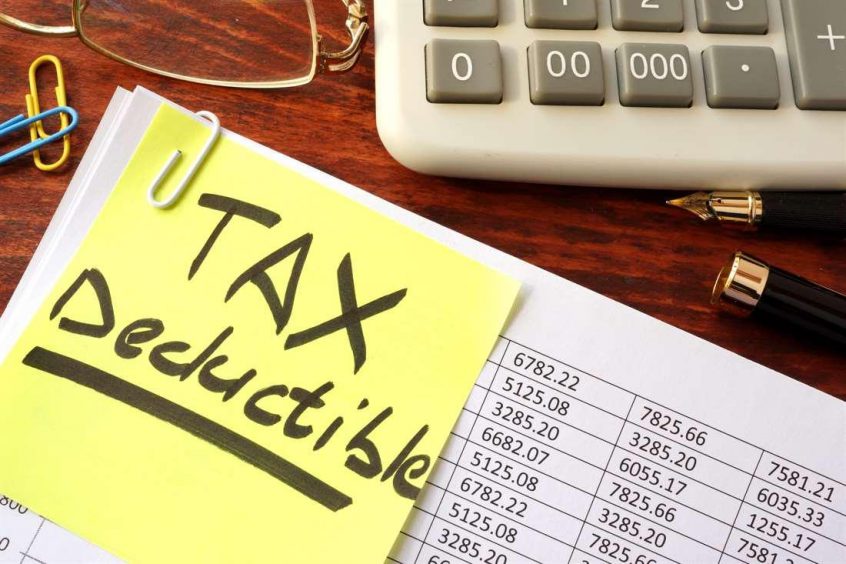

This change allows IRS more time to match wage information to tax returns through systemic verification, and identify any discrepancies before issuing refunds. To help address this issue, consistent with GAO's prior reporting, the Protecting Americans from Tax Hikes Act of 2015 advanced the deadline for employers to file W-2s to SSA to January 31 (about 1 to 2 months earlier than in prior years). The agency estimates that at least $1.68 billion was paid in IDT refund fraud in 2016. IRS continues to confront the ongoing problems of identity theft (IDT) refund fraud. Therefore, IRS may be missing opportunities to maximize use of early W-2 data.
DEDUCTIBLE MEDICAL EXPENSES 2018 IRS VERIFICATION
Finally, IRS has not assessed the benefits and costs of expanding systemic verification to use for pre-refund compliance checks in other areas such as income underreporting and employment fraud. As a result, IRS does not have sufficient information to inform a decision on potential changes to the refund hold date and those subjected to it. Also, IRS did not fully assess the benefits and costs, including taxpayer burden, of the refund hold, nor how its analysis informs its broader fraud risk management or compliance efforts. For example, while IRS has plans to further explore holding refunds longer, it does not have an evaluation plan to assess the effectiveness of the refund hold on systemic verification. However, GAO found limitations to IRS's analyses. IRS further estimated that moving the refund hold to March 1 for all taxpayers could protect $895 million compared to $533 million if it only held refunds with EITC or ACTC until that date. In that analysis, IRS estimated that it could have protected $100 million in fraud and noncompliance had it held all taxpayer refunds until February 15-$35 million more than it protected by holding refunds with EITC or ACTC. For example, the final analysis included more returns and estimated total revenue IRS could protect by extending the refund hold and expanding it to all taxpayers.

There are differences between these analyses. IRS's preliminary and final analyses of the February 15 refund hold both showed that IRS could have detected significantly more in potential fraud and noncompliance if it held all refunds until late February, when it had more W-2 data available. These issues reduce IRS's access to timely W-2 data, limiting its ability to prevent fraud and reduce noncompliance before issuing refunds. This action could also have the benefit of reducing SSA's W-2 paper processing costs by $9.7 to $11.3 million per year.

In August 2014, GAO suggested that Congress provide the Secretary of the Treasury with the authority to lower the electronic filing requirement from 250 W-2s to 5 to 10. By law, employers who file 250 or more W-2s are required to file W-2s electronically, while those who file fewer than 250 W-2s may opt to file on paper or electronically. Additionally, about 9 percent (about 23 million) of W-2s were filed on paper, which IRS does not begin to receive from the Social Security Administration (SSA) until March. Further, IRS has not assessed options for enforcing late W-2 penalties earlier. Also, some employers submit W-2s late, but IRS did not track the extent to which late W-2s are associated with fraud or noncompliance. In response to GAO's review, IRS reported it is planning to assess options for processing W-2s daily. For example, IRS received W-2s daily but its information technology systems processed them weekly. However, IRS was unable to verify over half of the returns it held until February 15 before issuing the refunds. IRS received over twice as many (over 214 million) Forms W-2, Wage and Tax Statement (W-2) by February 15 compared to the same time in 2016, and reported that W-2 data were responsible for improving fraud detection and reducing taxpayer burden. IRS also took actions to verify wage and other information reported on tax returns before issuing refunds, referred to as systemic verification, but several factors limited its success. Beginning in 2017, as required by law, the Internal Revenue Service (IRS) held all refunds for taxpayers claiming the Earned Income Tax Credit (EITC) or Additional Child Tax Credit (ACTC) until February 15.


 0 kommentar(er)
0 kommentar(er)
